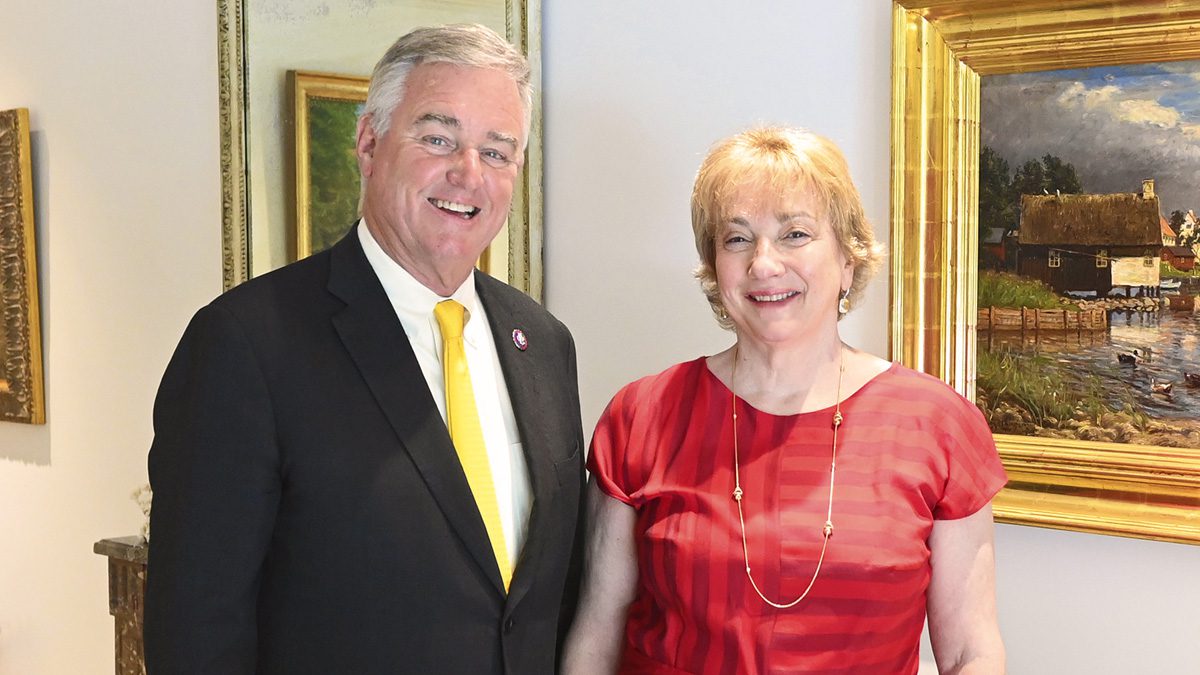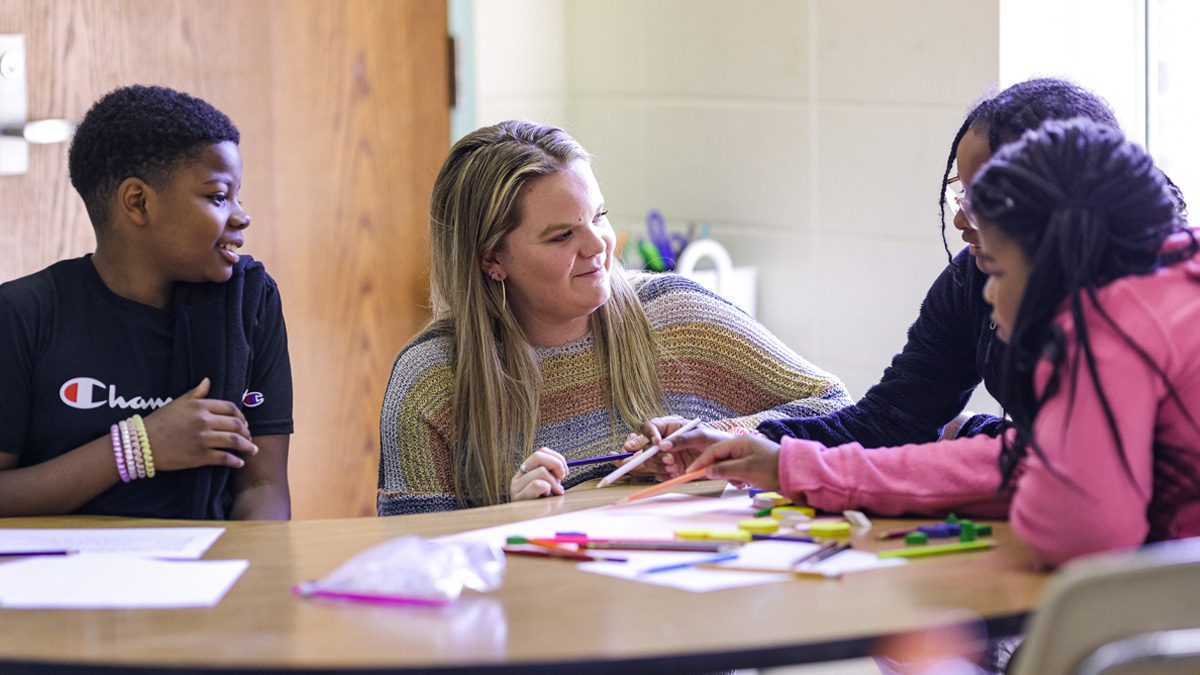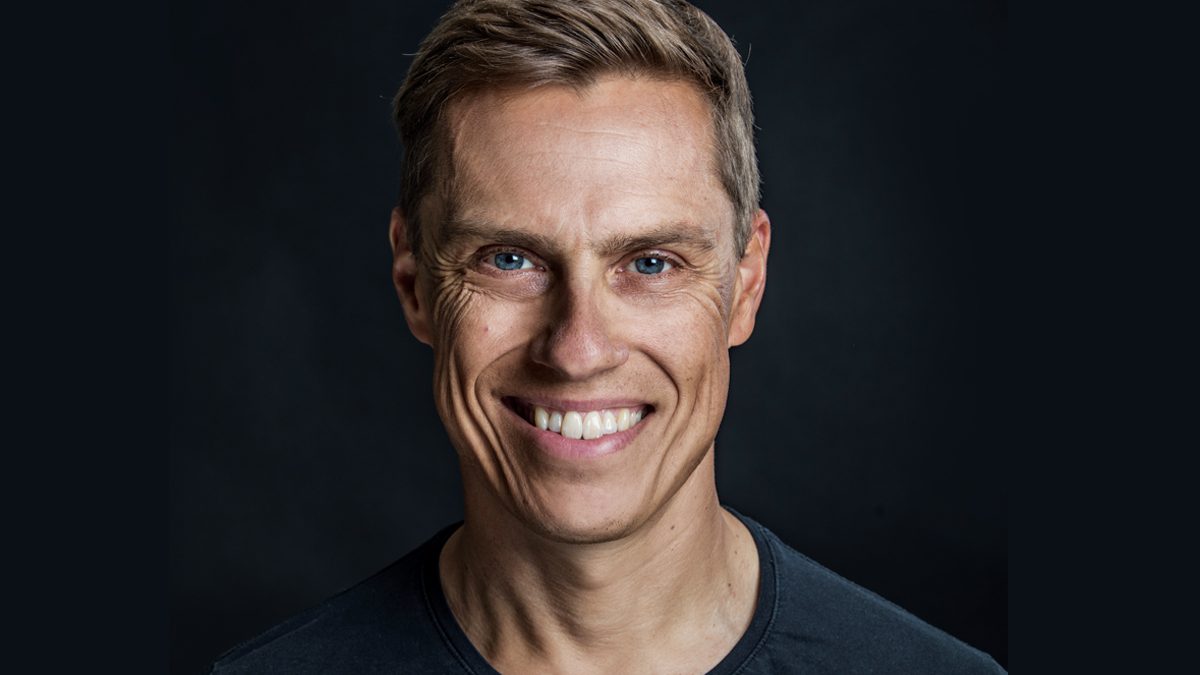
Feature
A Politico Takes The Pulse
Former Prime Minister of Finland Alexander Stubb ’93 is a leading voice on the future of Europe.
By Kelley Bruss
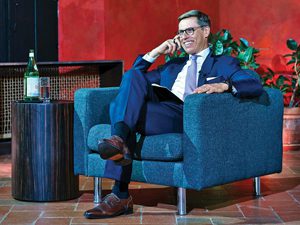
During the opening of the academic year of the School of Transnational Governance on Nov. 19, 2020, Stubb conducts a virtual interview of former U.S. Secretary of State Hillary Clinton, who was the Democratic presidential nominee in 2016.
Even before his year as Finland’s prime minister, Alexander Stubb ’93 was arguing that his country should be a member of NATO.
“When you have a 1,340-kilometer border with Russia, it’s always good to have friends,” says Stubb, who has held other ministry positions in Finland and with the European Union.
After Russia’s February invasion of Ukraine, a majority of Finns suddenly agreed with him.
“I’m not sure it’s for the right reasons,” Stubb says of the country’s application to join the North Atlantic Treaty Organization, “but I’m glad it’s happening.” Finns have a long history of pivoting, he says, and they did it again with great speed in February 2022.
“There wasn’t a need, a real crisis, that made it clear that Finland needed more backing,” says Brent Nelsen, a Furman professor of politics and international affairs, who also taught Stubb when he was a student. “The war in Ukraine provided that.”
As a former head of government and long time civil servant who also has extensive European and American education in politics and international affairs, Stubb is uniquely qualified to analyze these situations with both expertise and the freedom of no longer being directly involved.
“As a professor, I can take a distance and give an analysis,” says Stubb, who is the director of the School of Transnational Governance at the European University Institute.
In the first four months of the war in Ukraine, he gave more than 400 interviews – sometimes as many as 15 a day – on both the war and Finland’s bid to join NATO.
“At some stage, I admit it, you get tired of your own voice,” he says, grinning.
It’s not the life he imagined when he arrived at Furman in 1989 with a golf scholarship and plans to study economics.
Mr. Everything
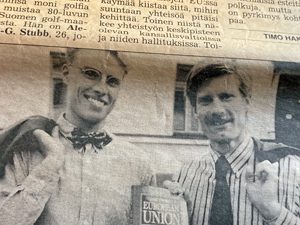
A 1994 article in the Finnish newspaper Iltalehti featuring “The European Union: Readings on the Theory and Practice of European Integration.” The book was a collaboration between Stubb and Furman Politics and International Affairs Professor Brent Nelsen.
It took about three months for Stubb to decide neither golf nor economics would be his future.
The Berlin Wall came down during the fall of his first year. European Union membership seemed likely for Finland and some of its neighbors.
“It was exciting times to do international relations and political science,” Stubb says.
Even as he chose his major, Stubb wasn’t necessarily thinking about a political career. In fact, politics and religion were the only taboo topics in his family when he was growing up.
“I ended up as a political science major at a Baptist university,” Stubb says, laughing. “These things happen.”
He took Brent Nelsen’s first-ever sections of Politics of the European Union and International Political Economy classes. “The poor guy had Nelsen as a very green academic,” Stubb’s former teacher says.
Stubb remembers thoroughly regimented college years: classes, gym, lunch, library, sleep, repeat. That diligence paid off at graduation when he was honored as the top male student in his class.
“He was Mr. Everything,” Nelsen says. “Everyone knew who Alex was. Everyone knew Alex had a future.”
After graduating, Stubb stayed to collaborate with Nelsen on a book, “The European Union: Readings on the Theory and Practice of European Integration,” which they ultimately saw through four editions.
Stubb went from Furman to the Sorbonne in Paris, where he added French to his growing collection of languages. (He spoke Finnish, Swedish, German and English before college – and has recently learned enough “kitchen Italian” to get by.) He earned a master’s degree from the College of Europe in Bruges, Belgium, and a Ph.D. from the London School of Economics and Political Science.
“He was a bona fide scholar in his own right,” Nelsen says. Stubb is adamant that without his start at Furman, “I would have not done the things I have done.”
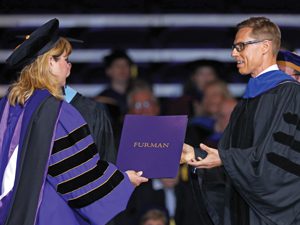
President Elizabeth Davis awards an honorary Doctor of Philosophy degree to Stubb during the Commencement in 2017 after Stubb delivered the keynote address. / Photo: Jeremy Fleming ’08
Furman students get an inside look
Stubb eventually went to work in the Finnish Foreign Ministry to the European Union. But Stubb, once the student, became the teacher when Nelsen traveled to Brussels for Furman and was able to observe him in his civil service role.
“I had never seen the inside of that kind of work for the EU,” Nelsen says.
Stubb took Furman students into his office and helped them connect with other officials as well.
“We’ve gotten people into offices that we never could have gotten in,” Nelsen says.
Stubb was a member of the European Parliament from 2004 to 2008. He thought he’d never touch national politics. But a scandal in his party led to him becoming Finland’s foreign minister “overnight.”
He spent eight years at the center of Finnish politics, serving also as trade and Europe minister, prime minister and finance minister.
Stubb says international political work boils down to war and peace, “the big stuff.”
“National politics, it gets a bit nastier,” he says. “The worst thing would have been local politics – that’s just murder.”
Stubb describes himself as an “avid trans-Atlanticist,” in part because of his years in the United States. When he was in national politics, he took hits for his advocacy of NATO membership.
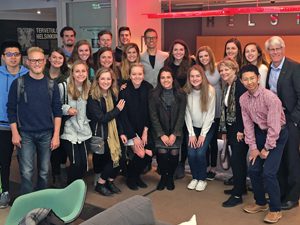
Stubb (center), Nelsen (far right), now-retired Politics and International Affairs Professor Dorianne Norwood (first row, second from right) with Furman students during a trip to Brussels to observe Stubb’s work with the European Union in 2017. / Photo: Brent Nelsen
From YouTube to the classroom to cable news
Since 2020, Stubb has been director of the School of Transnational Governance at the European University Institute, in Florence, Italy. The program graduated its first cohort in June.
The role allows him the flexibility “to be talking to CNN and the BBC all day long,” Nelsen says.
Stubb’s facility with languages doesn’t hurt, either.
“That’s one of the reasons he is such a go-to commentator on all things European,” Nelsen says. “He can speak to the press in their language.”
Stubb was a visiting professor at the College of Europe in Bruges from 2000 and 2007. And while he isn’t teaching in his current role with the School of Transnational Governance, he is a frequent speaker and contributor to international dialogue. Together, the 12 episodes of his lecture series, “Understanding the War in Ukraine,” have had millions of views on YouTube.

Stubb with his wife, Suzanne Innes-Stubb, daughter, Emilie, and son, Oliver, attend a Sunrise Avenue concert in Finland.
The next stage
Stubbs has no intention of going back into national politics. Practically, there’s nothing higher on that level for him to experience.
“Never count him out,” though, Nelsen says. “I suspect that if he gets back into politics, it will be at the
European level and at a very high level.”
Stubb doesn’t disagree.
“If an international role were to knock on the door one day, I wouldn’t mind doing that,” he says.
Stubb makes it back to Furman every five years or so, and in 2017 was the university’s commencement speaker and received an honorary doctorate. He’s deeply committed to the “broad base” of a liberal arts and sciences education.
Furman “was a game-changer for me,” Stubb says. “I loved it. It changed my life.”
He knows this sounds like hyperbole, so he clarifies: “Finns don’t throw these things out if they don’t mean it.”
Courtesy photos
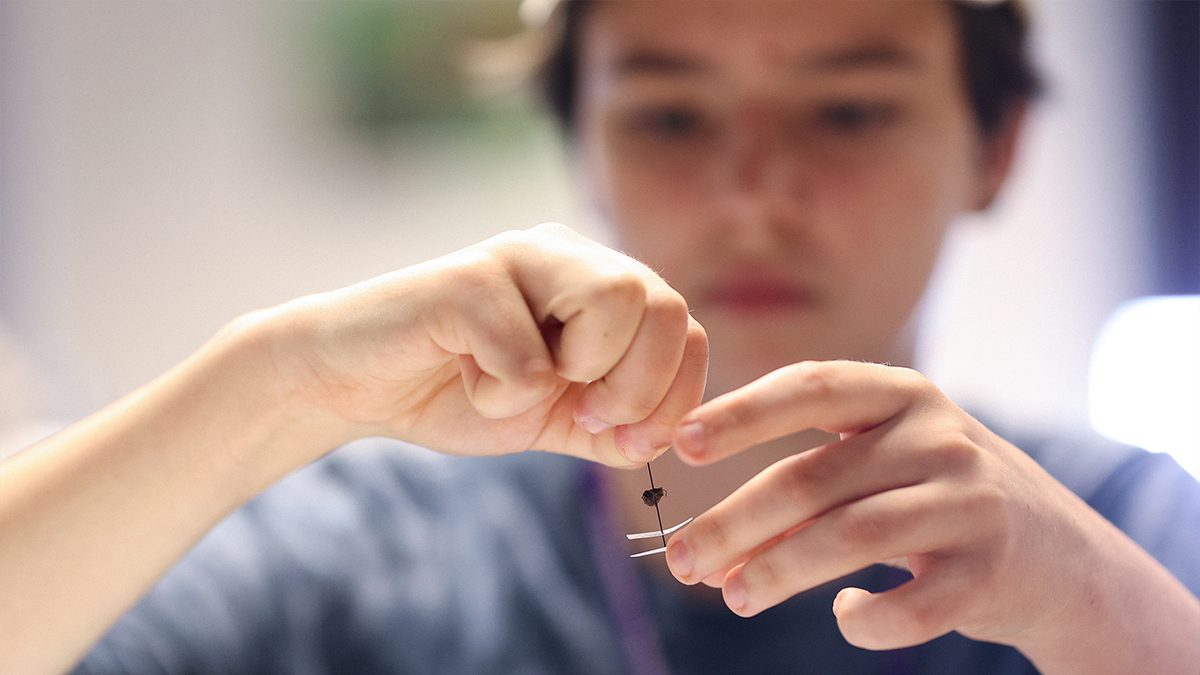
From the importance of insects, to the history all around us, to patient care across the language barrier, students ventured into the unknown.
